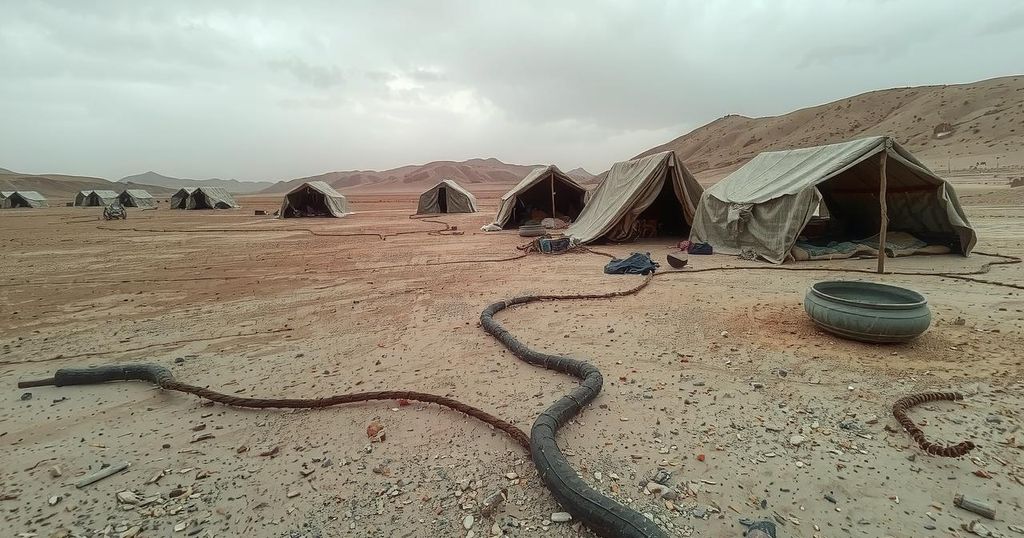Renewed clashes between the SAF and RSF in Sudan have led to increased violence and mass displacement, straining humanitarian resources and the healthcare system. Thousands are fleeing violence in Khartoum to overcrowded camps in neighboring regions, where supplies are critically low. The situation necessitates urgent international aid to address the escalating crisis and provide relief to affected populations.
The ongoing conflict between the Sudanese Armed Forces (SAF) and the Rapid Support Forces (RSF) is escalating into a severe humanitarian crisis, prompting extensive displacement. Thousands are fleeing to overcrowded camps in neighboring regions, particularly West Darfur and southern Khartoum, where local populations face dire conditions amid deteriorating infrastructure and healthcare services.
Recent fighting has caused mass exoduses from Khartoum, with thousands seeking refuge in already saturated camps in El Geneina, Nyala (South Darfur), and El Fula (West Kordofan). This surge is placing immense strain on local communities in Darfur and Kordofan, which are already suffering from shortages of food, shelter, and medical assistance.
In West Darfur, violence surged over the weekend, resulting in the deaths of three individuals from gunfire, alongside subsequent fatalities linked to an RSF member. Local residents are increasingly alarmed and calling for security measures in response to this violence, leading to a pervasive atmosphere of fear.
The healthcare situation in South Khartoum has drastically deteriorated, with at least seven pregnant women reported dead in the Belt area due to failing medical services. Clinics have been looted, and hospitals such as Bashair Teaching Hospital face critical shortages of supplies and power, hindering their ability to provide essential care.
Compounding these issues are fuel shortages that prevent healthcare facilities from delivering vital treatments, including dialysis, which has become prohibitively expensive, costing over SDG 40,000 per session. This situation renders medical care unaffordable for many families.
The escalating insecurity has also led to alarming reports of young girls going missing; at least 11 girls under the age of 18 have disappeared in the Belt area since May 2023. Activists attribute this trend directly to the deteriorating security landscape, exacerbated by militias aligned with both the RSF and SAF.
Amid this turmoil, Takaful community kitchens in South Khartoum’s Belt area have resumed meal distributions after a temporary cessation caused by insecurity and food shortages. While this development offers some relief to local communities, the overarching hunger crisis persists.
As violence and displacement increase across Sudan, residents in regions like El Geneina and South Khartoum are urgently appealing for humanitarian aid. The destruction of infrastructure and depletion of resources necessitates immediate action from the international community to mitigate and prevent further deterioration of the crisis.
In conclusion, the escalating violence and humanitarian crisis in Sudan, particularly driven by the conflict between the SAF and RSF, is resulting in mass displacement and severe shortages of basic necessities. The healthcare system is collapsing, exacerbating the suffering of vulnerable populations. Urgent humanitarian assistance is needed, coupled with international efforts to stabilize the situation and prevent further loss of life and safety in the region.
Original Source: www.dabangasudan.org






